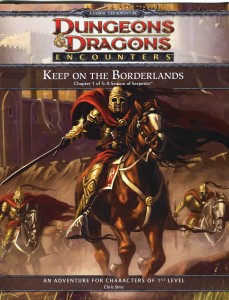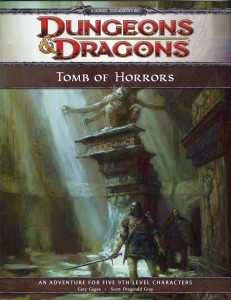While the Dungeon’s Master team enjoys some well-deserved vacation time, we’re breaking out the greatest hits and shining a spotlight on a few of our favourite articles from 2010. We’ve searched for hidden gems that our newer readers might have missed and our long-time readers will enjoy reading again. Enjoy a second look at these greatest hits from Dungeon’s Master.
Magic item availability has changed in D&D since we first published this article eight months ago. D&D Essentials brought with it a new classifications of magic items based on availability. This change, a significant one in most magic-plentiful D&D campaigns, makes the discussion of ownership and an item’s origins even more important. With more items falling into the uncommon and rare categories questions of ownership should be on the forefront of all adventurer’s minds when the discover treasure hoards.
Players content with common magic items at lower levels will look to upgrade as the gain levels. Now that the really good stuff isn’t as readily available at Ye Old Magic Shoppe, adventurers really have to work to locate that special something. Before D&D Essentials players knew that as soon as they found enough gold they could easily purchase whatever item they wanted, now they have to either remain content with the common goods (unlikely) or figure out how to find those really rare treasures.
When we first ran this article most of the people who left comments agreed with my recommendation that investigation into magic item ownership was an interesting role-playing exercise that might be done once and a while, but not something they would likely do regularly. Thanks to D&D Essentials and the new item classification this scenario is likely to become a much more important and much more regular part of D&D campaigns.
Where I don’t see anything changing is the PCs willingness to give up their newly gotten riches. If magic items have become that much more uncommon then PCs are probably even less likely to “do the right thing” and return an item that clearly belongs to someone else (or more likely their heirs).
On the flip side, heroes with such valuable and distinct magic items will likely have their own admirers who will keep tabs on their adventures. Should these heroes not return from some quest, you know that these admirers will go looking for their fallen friend (or hire someone else to do it) for no other reason than to recover the rare magic items he possessed.

